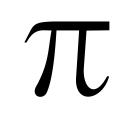If you'd like to learn more about different kinds of business structures, the U.S. Small Business Administration’s website offers helpful guides describing things like S-Corps, LLCs, and sole proprietorships. Here are some of the basic differences:
Sole Proprietorship
This is the simplest business structure, and it is also the most common among new businesses. Sole proprietorships have no distinction between the business itself and the owner of the business, and the two operate as one entity.
Limited Liability Company
LLCs are business structures somewhere between sole proprietorships and corporations. They're their own entities — often owned by multiple shareholders — but they retain some of the flexibility of sole proprietorships.
Corporations
Corporations, or C-Corps, are more complex business structures, with distinctive tax and legal requirements. This form is more typical for large businesses, but small businesses sometimes use the form, too, if they're anticipating rapid growth or outside investment.



 Equal Housing Opportunity
Equal Housing Opportunity